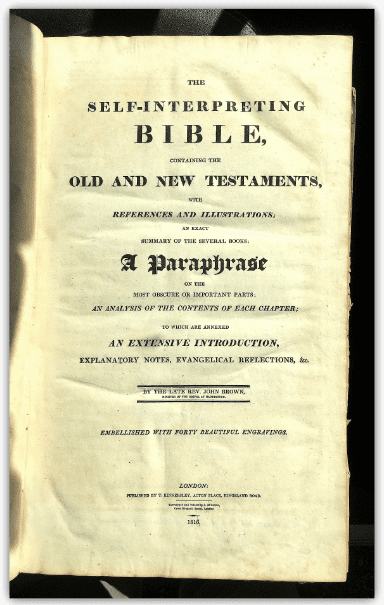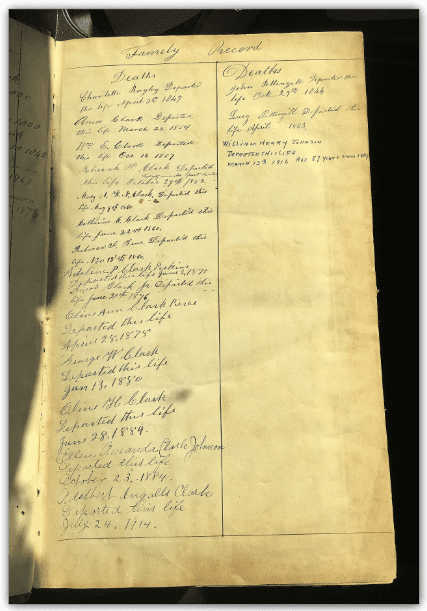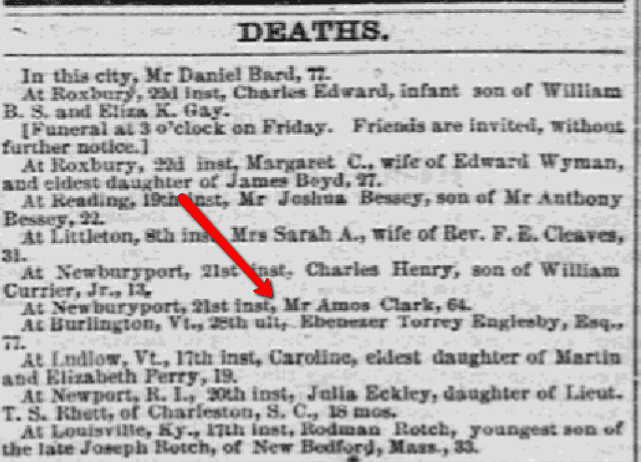I found this massive family Bible of my cousins Amos and Olive Howard (Pettingill) Clark.

It is a heavy, oversize Bible and measures 18 ½” by 11 ½”. It was published in London in 1816.

In this Bible there are no printed family registry pages inserted in between the Old and New Testaments or at the end of the book.
Instead, the family wrote their family history information on the blank front pages and on the blank end pages of the Bible.
Looking at the first page, I began to examine each entry and compare it to other family records that we have.

The first entry is for Amos Clark’s sister, Charlotte (Clark) Bayley, who “Departed this life April 5th 1847.” Good to know. There is no death date for her in the family records.
The next death entry is for his father, Amos Clark (1790-1854), who “Departed this life March 22 1854.”
That’s interesting – the family record states that he died on 22 March 1854.
Let’s see what the newspapers that week recorded.
The Daily Atlas tells us that he died on 21 March 1854.

Looking at the town clerk’s records, I found an entry for Amos Clark’s death.
His death is listed on line number 41 on page 83 of the town’s death register. It tells us that Amos Clark, male age 64, was a baker who died 21 March 1854.

Two contemporary records – the newspaper account published three days after his death and the town vital record that was likely entered in the town records within days of his death – both say he died 21 March 1854.
Notice that the entries of deaths on that page in the town’s death register are in chronological order. The entries in the Clark family Bible are also in chronological order. It’s likely that the entry for Amos Clark was written in the family Bible by his son around the time of his death.
Which date is correct: March 22nd or March 21st?
Who notified the newspaper or the town clerk and supplied them with the information?
Did that person give the wrong date which was then passed along to the Boston newspaper?
Did son or daughter-in-law simply enter the wrong date in the family Bible?
Looking closely at the entries in the Clark family Bible before and after the listing of Amos Clark’s death, it appears from the ink, handwriting style, and position of the entries on the page – compared with the fourth and subsequent entries – that the first three entries were all written at the same time. That might account for the discrepancy in the date of death.
We will have to uncover additional records to confirm the date.
What we do know is that these three contemporary accounts vary by one day.
The next steps would be to search for any additional records of Amos Clark’s death. Church registers, probate records, a published funeral sermon and other sources could give us more information and confirm which date is correct.
Genealogy Tip: Records of the same event might not always agree. You will need to uncover all of the records for each of your relatives, evaluate them, and conclude the accurate dates of the key events in their lives.
